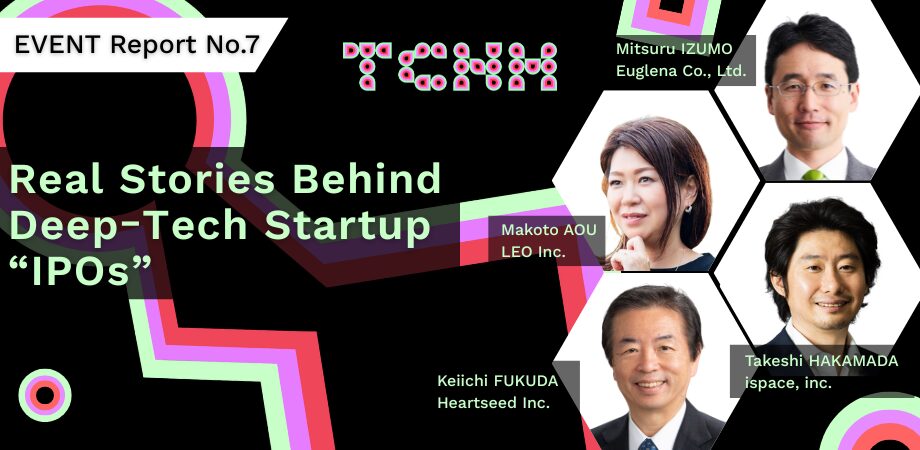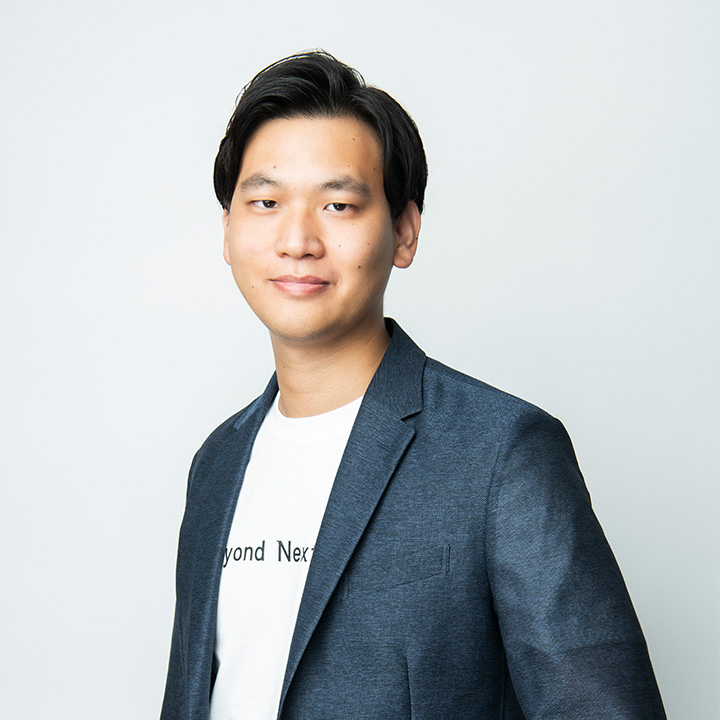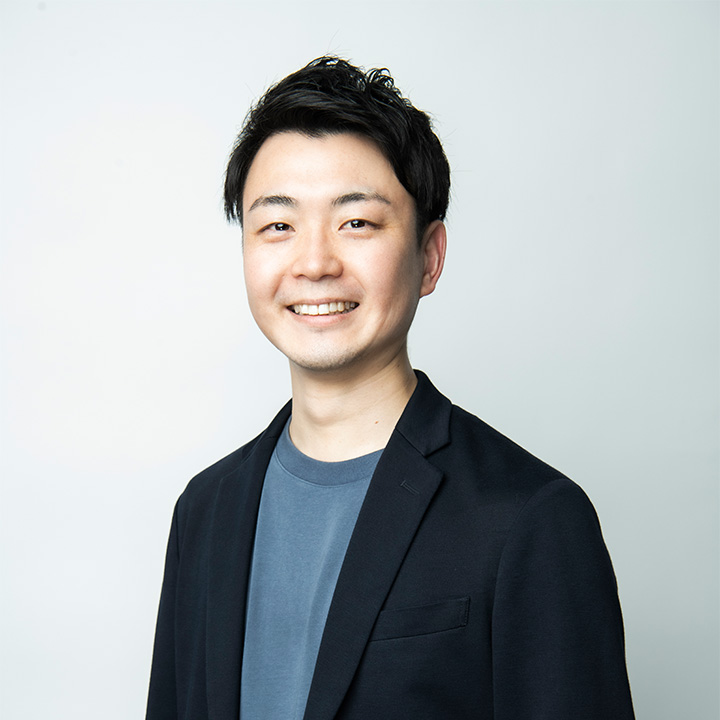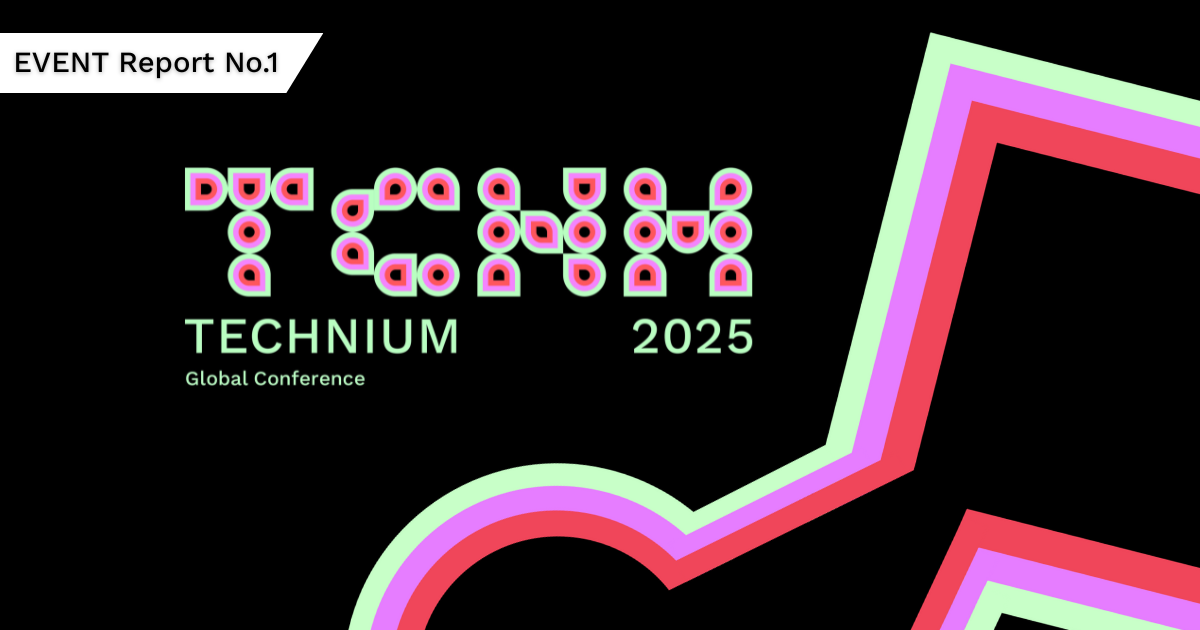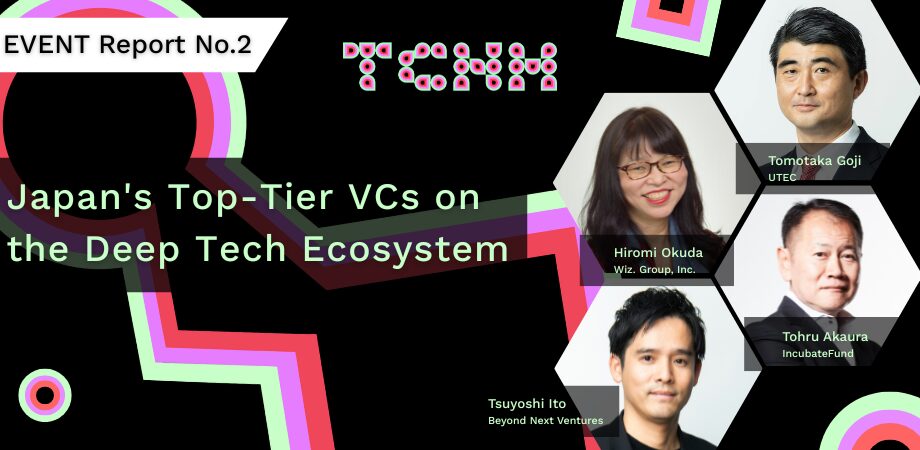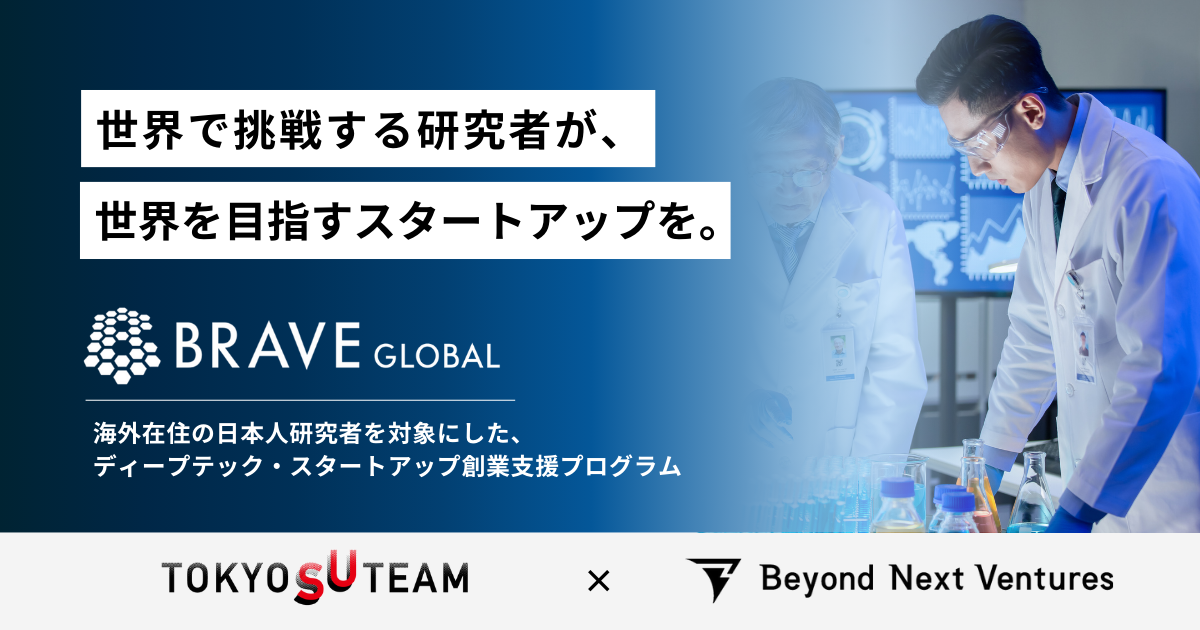Beyond Next Ventures co-hosted the TECHNIUM Global Conference, Japan’s first international conference dedicated to deep-tech on May 7-8. It brought together leading players driving Japan’s deep-tech startup ecosystem and featured a wide range of insightful sessions.
As this conference was invitation-only and received a great deal of attention, we are excited to share some highlights from the sessions for those who were unable to attend in person.
In this event report, we will introduce a session titled “Entrepreneurs Who Pioneered The Future- The Real Story Behind Deep Tech Startup IPOs”, which was held during the conference.
Session Title:
Entrepreneurs Who Pioneered The Future- The Real Story Behind Deep Tech Startup IPOs
Moderator:
Makoto Aou, CEO at LEO Co.
Speakers:
-Mitsuru Izumo, Founder & President of Euglena Co.
-Takeshi Hakamada, Founder & CEO of ispace inc.
-Keiichi Fukuda, Founder & CEO of Heartseed Inc.
Contents
Mitsuru Izumo from Euglena kicked off the session. Euglena develops products using microalgae, including food and cosmetics, and is also engaged in the biofuel business. Izumo mentioned that the Kishida Cabinet’s Five-Year Plan to Foster Startups has reached its halfway point. “It aims to expand the base of ventures tenfold and increase the ‘peak’ of startups by creating ten times more unicorns, while raising the supply of risk money to 10 trillion yen. Today, I’d like to discuss how Japan can become a startup powerhouse,” he said.
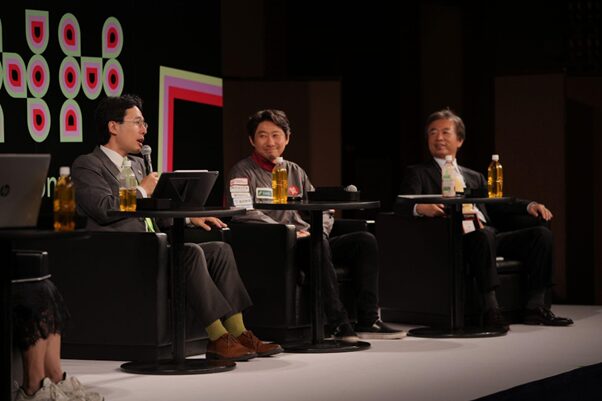
Takeshi Hakamada from ispace is working on a mission to achieve the first commercial moon landing by a company in Asia, while Keiichi Fukuda from Heartseed, a Keio University-origin startup, has been working on a regenerative therapy to treat heart failure not with heart transplants but with the transplantation of heart muscle cells derived from iPS cells.
Together with moderator Makoto Aou, the three panelists—representing the fields of biotechnology, space, medicine, and AI—are prominent examples of “senior entrepreneurs” who have gone public in the deep tech sector.
A Strong Desire To Put Research Into Practical Use
Moderator Aou jumped to questions and enquired the speakers why they “choose entrepreneurship over research ?”
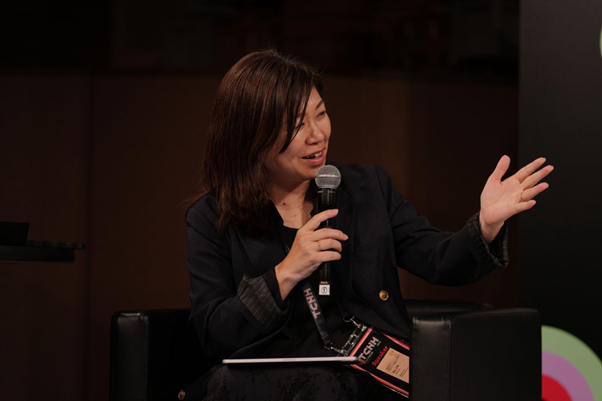
“I really wanted to implement my work in society,” said Izumo, adding that in recent years more University of Tokyo students have been choosing entrepreneurship over becoming bureaucrats. “We must pick good research and increase the number of startups to be able to bring them into the real world. As the government’s five-year plan says, if we multiply that number tenfold, we’ll be able to solve social issues in Japan and around the world,” he declared with conviction.
Fukuda shared that his motivation stemmed from a personal experience. “When I was in my 20s, dilated cardiomyopathy (heart disease) was untreatable except through heart transplant. I was treating a patient my own age with this disease and came face-to-face with reality that there were no treatment options. That’s when I felt strongly that I had to turn to science to develop a treatment.”
Although he launched the company with a strong determination in 2015, the university community remained skeptical. At that time, the prevailing attitude in academia was, “Why is a professor starting a venture? Is he/she even doing proper research?”
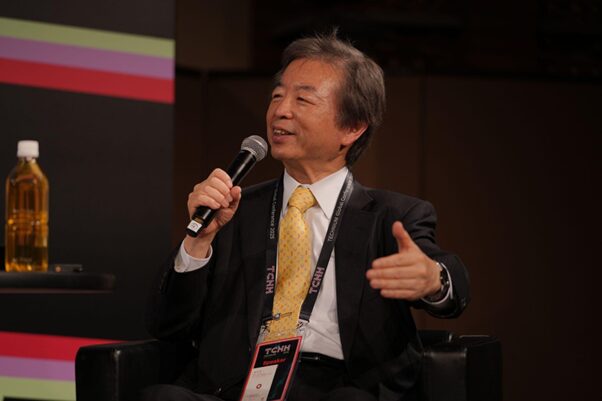
University-launched startups in Japan have long faced headwinds, but Izumo explained how things have changed in recent years. “The number of startups originating from Japanese universities has exceeded 4,000, with the University of Tokyo accounting for over 400, and Keio and Kyoto University each having just under 300. As real examples emerge, we’re now in a phase where this ecosystem will expand to regional universities and national research institutions,” he said.
Hakamada studied aerospace engineering in university and graduate school. “Unlike these two, I’m not a researcher,” he said, but explained that his interest in the social implementation of space technology had already begun during graduate school. After graduating, he initially joined a consulting firm, but his intense passion for space led him to join the current profession after receiving an invitation to participate in the lunar exploration race Google Lunar XPRIZE (GLXP).
Hardships Faced When Going Public
Next, Aou asked the speakers to talk about challenges they faced to go public.
Fukuda emphasized the importance of building systems within universities where veteran entrepreneurs pass on their knowledge about fundraising, investor relations, and the path to IPO to new entrepreneurs. He recalled that when he started his company, such support systems didn’t exist and the most difficult part was figuring out the first step i.e.how to actually start a company.
Hakamada, who founded his company in 2010, also said that more than the act of starting a company, fundraising was quite challenging: “There were a lot of ‘hard things’ when we couldn’t raise money,” he shared.
Both Fukuda and Hakamada spoke about the importance of mentors and peers.
While Izumo added a broader perspective on startup ecosystems: “Ecosystem for a living being is only complete when it has three generations of parent, child, and grandchild.” He elaborated that “in the IT sector, you have first-generation entrepreneurs like (Masayoshi)] Son and (Hiroshi) Mikitani, second-generation leaders like (Susumu) Fujita (from CyberAgent) and (Tomoko) Namba (from DeNA), and now we’re seeing the third and even fourth generations. We need to build a similar generational ecosystem for deep tech startups at university level.”
He also addressed one of the biggest challenges faced by entrepreneurs: fundraising. “When startup founders tell me they’re struggling to raise funds, I ask them, ‘How many venture capital firms have you visited?’ Most of them only mention three to five names. In my case, I visited every firm listed in the Venture Capital Yearbook. Smart people tend to be shy — after being rejected three times, they feel deeply embarrassed. But I’ve never seen anyone die of embarrassment. If it’s a business you truly believe in, then it should come naturally to visit every single one (venture capital). That’s what allows you to survive.”
Hakamada also stressed the importance of taking action: “I did a lot of things that probably made people around me think, ‘You went that far?’ But it’s precisely because I went that far that I was able to seize certain opportunities. There were all kinds of ‘hard things,’ and fundraising was the biggest. But I also faced many organizational challenges — like frequent changes in team members. What I’ve come to believe through those experiences is the importance of having conviction and staying committed.”
Using a moon landing as a metaphor, he added, “Just like landing on the moon, you can’t give up after one try. The key is to take what you’ve learned from each attempt and apply it to the next. It’s vital to conserve enough strength to keep experimenting,” he said.
Aou said, “Startups are really about doing things relentlessly. What matters is the ability to recover and rise again after failures.”
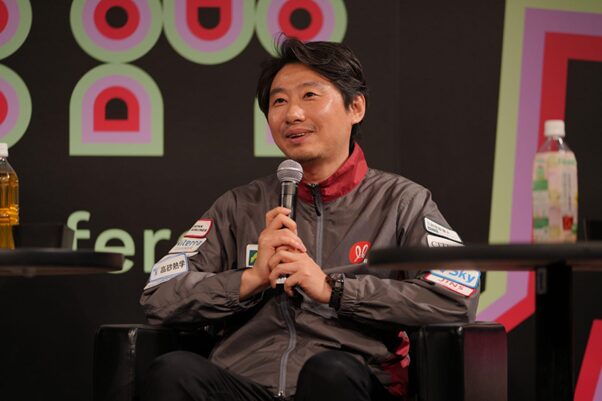
Messages for the Future
Fukuda likened starting a company to placing a rocket on a launch pad. “Before placing it on the launch pad, you have to complete the rocket (one’s technology) development. Once you’ve founded a company, you’ll constantly be asked by VCs questions like ‘When will the clinical trials begin?’ The countdown begins the moment you start the company, so you can’t take a laid-back approach thinking you’ll complete the research and development after that,” he noted.
Hakamada, meanwhile, advised against becoming too stubborn. “As researchers, people often have a clear idea of the path they want to take. But there isn’t only one route to your final goal. It’s important not to get stuck on a single method, what matters is not giving up and continuing on. Flexibility in how you approach your goals is key,” he said, encouraging an open and adaptable mindset.
Izumo concluded with a message of encouragement, noting, “The Japanese government is committed to increasing the supply of risk capital for startups tenfold over five years. When the Koizumi Cabinet pledged to create 1,000 university-based startups, that goal was achieved—and now we have 4,288 such companies. There’s no other industry like this. And with deep tech, language is not a handicap. It’s an area where Japan can gain a global advantage. That’s why now is a real window of opportunity for launching deep tech startups. I’d like to work with all of you to help achieve the goal of tenfold growth in five years.”
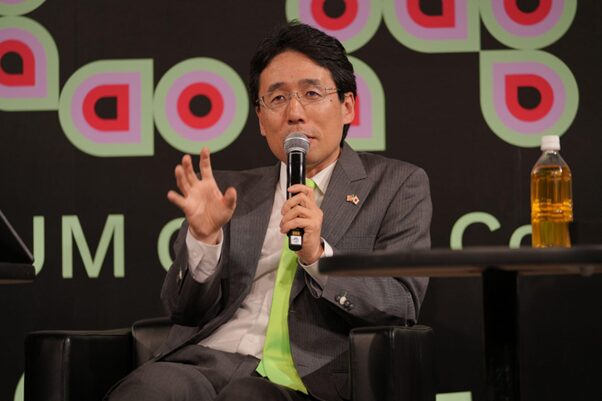
At the end, Aou thanked the speakers for confidently demonstrating that Japan’s research and technology are on par with the rest of the world, and offered words of encouragement to the entire audience, saying, “I hope you will take on the challenge of this field as entrepreneurs while helping to build a deep tech ecosystem.”
The conference also provided numerous practical networking opportunities, bringing together researchers, startups, investors, and corporations. Over 1,000 business meetings took place at the dedicated matching booths, contributing to the vibrant energy of the event.
TECHNIUM Global Conference
TECHNIUM Global Conference official website: https://tcnm-gc.com/#EN

